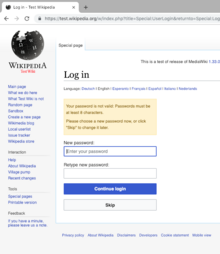Having looked through the list, it looks very Latin and probably American.
There is no way the most popular Cyrillic passwords like "пароль" would not be there: "пароль" is an equivalent of "password" (2nd place) and even its transliterated variant ("пароль" written in Latin keyboard layout, i.e. "gfhjkm") is there at 111th place. Transliterated versions of another popular passwords like "lhfrjy" ("dragon" - 10th place, translated to "дракон" and transliterated to "lhfrjy" - 9089th place) or "vfcnth" ("master" - 19th place, translated to "мастер" and transliterated to "vfcnth" - 11875th place) are also there.
I would thus bet there should be dozens of Cyrillic passwords (and probably in other alphabets like Arabic or Chinese) in this list. Notably the two most popular (and ridiculous) Cyrillic passwords, "пароль" ("password") and "йцукен" (equivalent of "qwerty", 4th place) should clearly be in top-100. It would be strange to ban "gfhjkm" (a person made at least a minor security effort) and not to ban "пароль" (an immediate guess for a Cyrillic user).
Could you please thus check you picked a really universal list? Thanks

